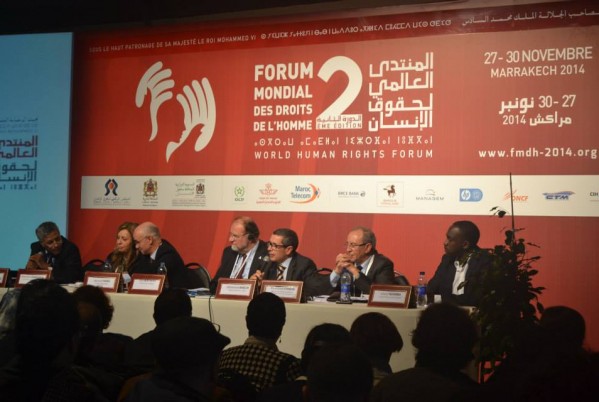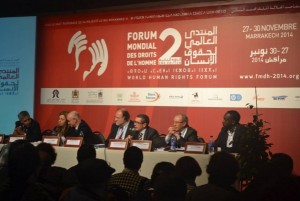Commentary Magazine
Michael Rubin
I spent the last week of November in Morocco in order to attend the Second World Human Rights Forum, an international confab of NGOs working on issues ranging from indigenous language rights, to countering child abuse, to labor issues, to women’s education, to combating torture and providing restitution to its victims.
The Moroccan Association of Human Rights which, contrary to the reporting of Al Jazeera, is a somewhat obscure group, boycotted (after first demanding and receiving an invitation) the event in protest of, well, it’s never clear when it comes to the Moroccan Association of Human Rights. Yet the fact of the matter is that while far from perfect, Morocco has made great strides in respect for human rights since King Mohammed VI assumed the throne upon his father’s death fifteen years ago. Morocco is the only country, for example, to host a truth and reconciliation committee–with testimony on television no less–without first having regime change. That Mohammed VI encouraged such a process, in effect airing his own father’s dirty laundry, highlights sincerity.
When it comes to language and indigenous rights, Morocco has also been doing the right thing. The Berber language Tamazight is now official, and buildings and documents outside Berber areas now sport it and its distinctive alphabet next to Arabic and French. Berbers also display their own flag, a privilege indigenous groups elsewhere in the Arab world (except in post-war Iraq) and Iran cannot do.
In the Western Sahara, too, the Moroccan government has done the right thing. While Algeria and some other countries dispute Moroccan suzerainty over the Western Sahara, a colonial territory with historic links to Morocco which Morocco occupied upon the Spanish withdrawal, the Moroccan government has flooded the region with resources to spark its economy and provide better schooling, housing, and other infrastructure than is available in much of the rest of country. This coming year, Morocco will begin implementing its regionalization plan, effectively giving the Western Sahara local autonomy, and setting the stage for greater regional autonomy throughout the diverse country.
To support Morocco’s success as it moves forward, the United States should begin providing development assistance directly to the Western Sahara. Traditionally, the United States has avoided doing so because of disputes over the Western Sahara’s status, but U.S. policy now embraces Morocco’s suzerainty over an autonomous Western Sahara. There is no legal impediment to providing development aid to the region, one which I was fortunate to visit a year ago. The irony of the current situation is that the United States essentially aids one side of the dispute—Sahrawi refugees stuck in Algerian refugee camps—through the donations the United States makes to the Office of the United Nations High Commissioner for Refugees and the World Food Program. And yet, USAID refuses to provide assistance to support those refugees who have escaped their Algerian and Polisario captors and decided to return to the Western Sahara. It should be the policy of the United States to end refugee crises, rather the perpetuating them.
The biggest problem the Western Sahara now faces is capacity. The region will soon do far more to govern itself, but the managerial and bureaucratic class in the region has little to no experience doing so. American aid to develop real managerial capacity and build up the independence and autonomy of civil society could be crucial. And Morocco would welcome it. So would the Sahrawis living in Moroccan Western Sahara. How sad and short-sighted it is, then, that rather than assist the one regional state that is stable and secure, has listened to the international community, and is doing the right thing, the United States seems intent on turning its back on an opportunity to make permanent Morocco’s progress and provide a base and a model for local autonomy which could expand stability and democracy well beyond Morocco’s borders.








